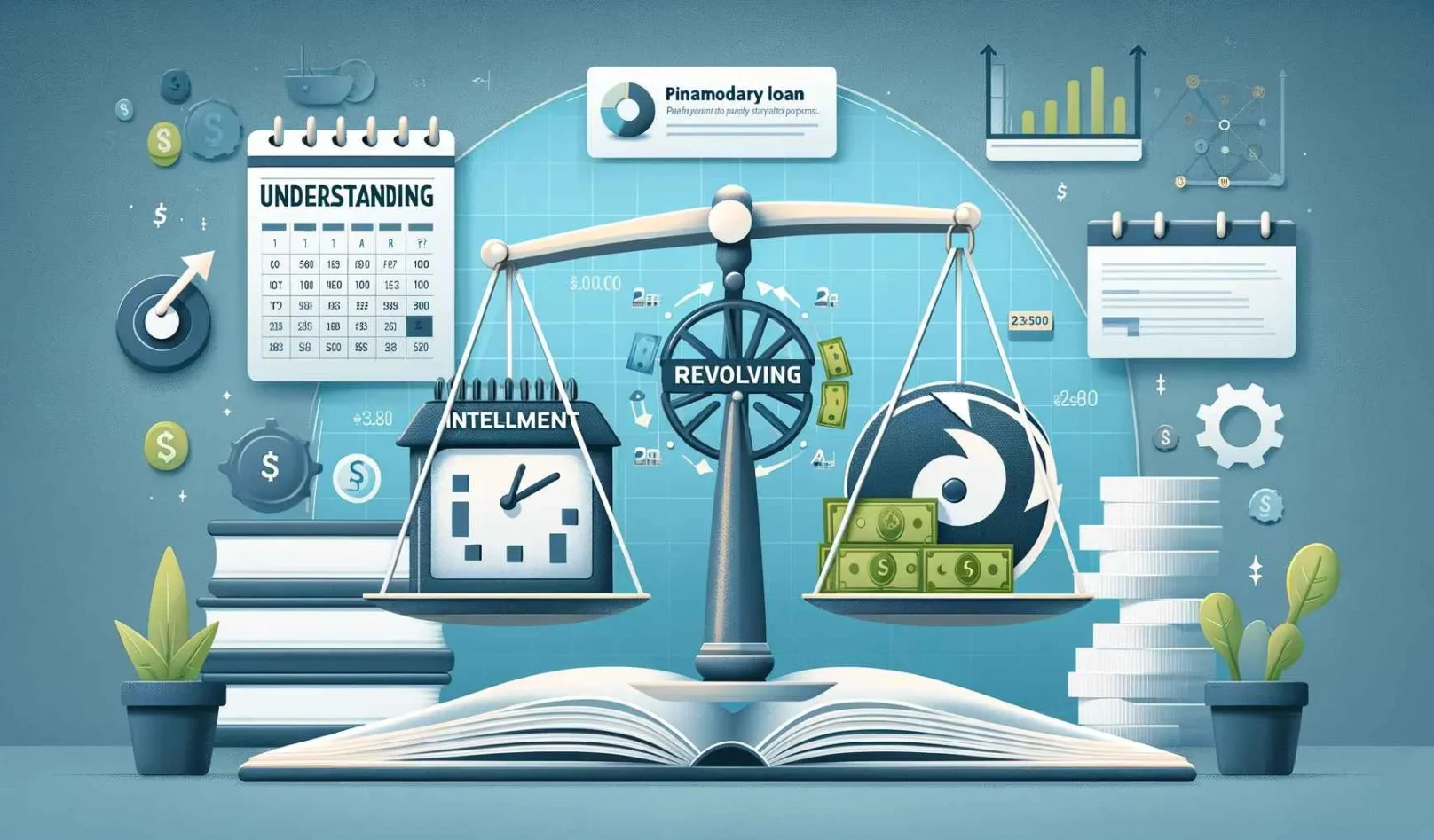
Payday loans are a popular short-term borrowing option for many consumers. But there is often confusion surrounding whether payday loans fall into the categories of installment credit or revolving credit. Understanding the correct classification and characteristics of payday loans enables borrowers to make better financial decisions. This guide examines payday loans in relation to installment loans and revolving credit.
Introduction: The Basics of Payday Loans
Payday loans are small, short-term loans that provide fast cash to borrowers until their next paycheck. They typically range from $100 to $500 with sky-high interest rates and fees. Payday loans must be repaid in full by the borrower’s next pay date, usually within two to four weeks. Recognizing whether these loans are installment or revolving credit helps inform financial choices.
What Are Installment Loans?
Installment loans provide a lump sum to borrowers upfront and are repaid in equal monthly installments over a fixed period of several months or years. Common installment loans include mortgages, auto loans, and personal loans. These loans charge lower interest rates and allow borrowers to pay off debt gradually over time.
Characteristics of Revolving Credit

Exploring Revolving Credit
Revolving credit provides flexible, renewable access to funds that can be used, repaid, and reused up to a certain limit. Credit cards are the most common type of revolving credit. Borrowers make minimum monthly payments on outstanding balances but can continue charging expenses as long as they stay below their credit limit.
Payday Loans: Installment or Revolving Credit?
Payday loans are considered a form of installment credit, not revolving credit. Borrowers receive a lump sum upfront and must repay the entire loan amount plus fees by their next paycheck. They cannot reuse or reborrow funds already repaid. This differs from revolving credit like credit cards.
The Nature of Payday Loan Rates

Are Payday Loans Variable or Fixed Rate?
The interest rates charged on payday loans are fixed rates, not variable rates. This means the percentage charged in fees based on the loan amount remains the same for the entire 2-4 week term until repayment. It does not fluctuate.
Understanding Payday Loans Better
How Do Payday Loans Differ from Traditional Loans?
Payday loans differ from traditional installment loans in several key ways:
- Much shorter repayment terms of 2-4 weeks rather than months/years
- Requires only proof of income rather than undergoing credit checks
- Significantly higher interest rates and fees
- Smaller loan amounts up to $500
- Faster access to cash, often instantly or within one business day
The Impact of Loan Type on Borrowers
The type of loan borrowed can greatly impact consumers’ finances and repayment capabilities. Payday loans carry risks like rollover debt cycles and default. Traditional installment loans have longer terms and lower rates. Borrowers should understand differences to choose affordable loan options.
Choosing the Right Loan for Your Needs
Consumers should evaluate their budget, income stability, credit health, and financial objectives before deciding between installment loans and payday loans. Those with good credit may qualify for traditional installment loans with lower rates. Payday loans can provide quick funds but should be used prudently and as a last resort.
Conclusion: Navigating Your Loan Choices

All loan types carry pros, cons, and responsibilities. Recognizing that payday loans fall into the installment loan category rather than revolving credit informs smart borrowing decisions. Carefully examining your financial situation ensures you select affordable loans that set you up for success.
FAQs
Is a payday loan considered installment or revolving credit?
Payday loans fall into the category of installment credit because borrowers receive a single lump sum upfront and repay the entire balance by a fixed date. They are not a form of revolving credit.
How do interest rates work in payday loans? Are they variable or fixed?
Payday loans charge a fixed interest rate and fee amount determined at the time of borrowing. Their rates do not vary or fluctuate throughout the short 2-4 week loan term.
What are the key differences between payday loans and other forms of credit?
Compared to installment loans and credit cards, payday loans have very high rates, short repayment windows, low approval barriers, small maximum amounts, and provide cash instantly.
How should one decide between an installment loan and a payday loan?
Consider your budget, credit health, income stability, and financial objectives. Payday loans provide quick cash but are high risk. Traditional installment loans are lower risk if you qualify.
What are the risks associated with payday loans?
Risks include expensive fees, defaulting, rollover debt cycles, collections, and penalty bank fees. Payday loans should be used sparingly as a last resort during financial hardship.
Conclusion: Navigating Your Loan Choices
All loan types carry pros, cons, and responsibilities. Recognizing that payday loans fall into the installment loan category rather than revolving credit informs smart borrowing decisions. Carefully examining your financial situation ensures you select affordable loans that set you up for success.
▶ Extra Information: Same Day Pay Jobs: A Comprehensive Guide To Earning Instantly
